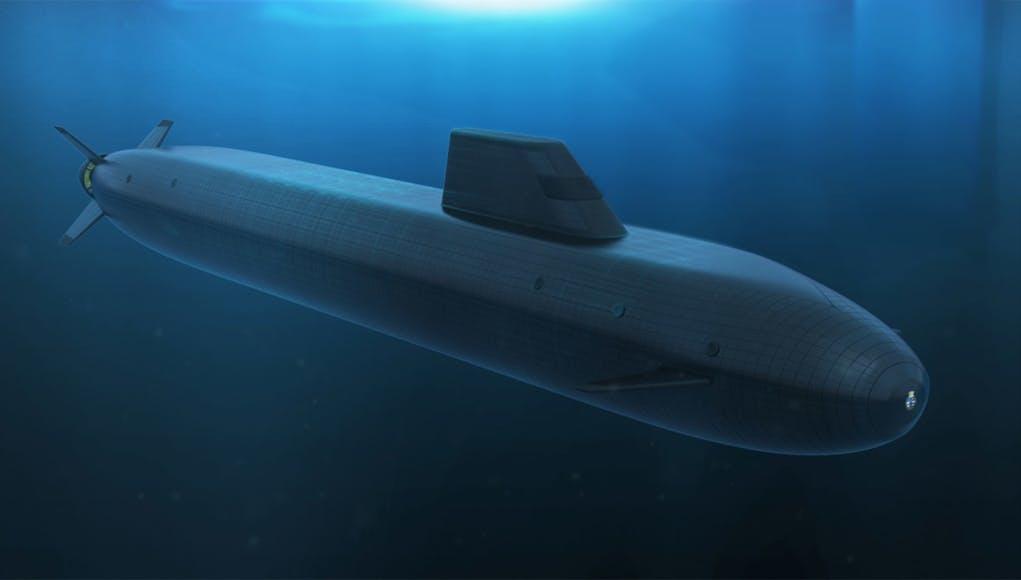JUST SAY NO!
Britain commits to four new Trident missile submarines
An artists impression of the currently in-build Dreadnought.Sea
By George Allison
- September 4, 2024
The UK Government has reaffirmed its commitment to the nuclear deterrent during Defence Secretary John Healey’s recent visit to a Vanguard-class submarine returning from patrol.
This marks Healey’s first official engagement in Scotland since taking office and highlights the government’s ongoing dedication to maintaining the country’s nuclear capabilities.
The government’s ‘triple lock’ includes three key promises:Building four new nuclear submarines at Barrow-in-Furness, which will support high-quality apprenticeships and jobs across the country.
Maintaining a continuous at-sea deterrent to ensure protection for the UK and NATO allies, 24 hours a day, 365 days a year.
Delivering future upgrades to keep the submarines ready to patrol and protect national security.
During his visit, Healey expressed appreciation for the crew of 140 submariners and he reiterated the government’s commitment to the nuclear deterrent:
“Royal Navy submariners make extraordinary sacrifices to keep us all safe and it was an honour to thank the crew on behalf of the British people. As they return home, we salute their courage, dedication, and professionalism. Our new Government is unwavering in our commitment to our nuclear deterrent, maintained on behalf of the UK and our NATO allies. Our ‘triple-lock’ will safeguard Britain for generations to come.
As the home of our nuclear submarines and major shipbuilding yards, Scotland is central to UK defence. I am determined to make defence a foundation for jobs, growth and prosperity across Scotland.”
The mission, known as Operation Relentless, ensures that at least one nuclear-powered and armed submarine is always on patrol, deterring potential nuclear threats.
The Ministry of Defence said in a news release:
“The name of the vessel, length of patrol, and its location at sea are all closely guarded secrets. On board, only a select few are authorised to know where in the ocean depths they are operating, with the rest of the crew dutifully carrying out their roles unaware of their location.
It is this secrecy that makes the nuclear deterrent so effective. A potential enemy can never predict where a Vanguard Class is operating, making the cost of attacking the UK or NATO allies far outweigh the benefits.”
The UK has maintained a continuous nuclear deterrent for over 55 years, and preparations are underway at HM Naval Base Clyde for the new Dreadnought Class submarines, set to replace the Vanguard submarines by the 2030s.
- September 4, 2024
The UK Government has reaffirmed its commitment to the nuclear deterrent during Defence Secretary John Healey’s recent visit to a Vanguard-class submarine returning from patrol.
This marks Healey’s first official engagement in Scotland since taking office and highlights the government’s ongoing dedication to maintaining the country’s nuclear capabilities.
The government’s ‘triple lock’ includes three key promises:Building four new nuclear submarines at Barrow-in-Furness, which will support high-quality apprenticeships and jobs across the country.
Maintaining a continuous at-sea deterrent to ensure protection for the UK and NATO allies, 24 hours a day, 365 days a year.
Delivering future upgrades to keep the submarines ready to patrol and protect national security.
During his visit, Healey expressed appreciation for the crew of 140 submariners and he reiterated the government’s commitment to the nuclear deterrent:
“Royal Navy submariners make extraordinary sacrifices to keep us all safe and it was an honour to thank the crew on behalf of the British people. As they return home, we salute their courage, dedication, and professionalism. Our new Government is unwavering in our commitment to our nuclear deterrent, maintained on behalf of the UK and our NATO allies. Our ‘triple-lock’ will safeguard Britain for generations to come.
As the home of our nuclear submarines and major shipbuilding yards, Scotland is central to UK defence. I am determined to make defence a foundation for jobs, growth and prosperity across Scotland.”
The mission, known as Operation Relentless, ensures that at least one nuclear-powered and armed submarine is always on patrol, deterring potential nuclear threats.
The Ministry of Defence said in a news release:
“The name of the vessel, length of patrol, and its location at sea are all closely guarded secrets. On board, only a select few are authorised to know where in the ocean depths they are operating, with the rest of the crew dutifully carrying out their roles unaware of their location.
It is this secrecy that makes the nuclear deterrent so effective. A potential enemy can never predict where a Vanguard Class is operating, making the cost of attacking the UK or NATO allies far outweigh the benefits.”
The UK has maintained a continuous nuclear deterrent for over 55 years, and preparations are underway at HM Naval Base Clyde for the new Dreadnought Class submarines, set to replace the Vanguard submarines by the 2030s.
No comments:
Post a Comment